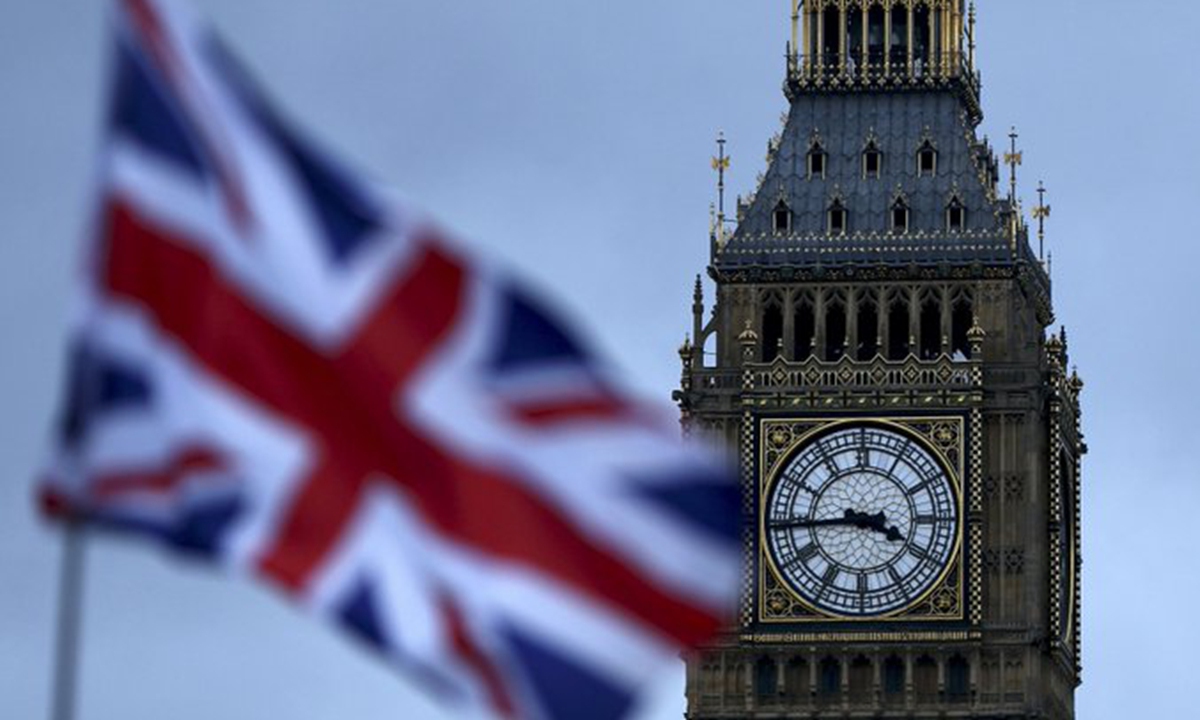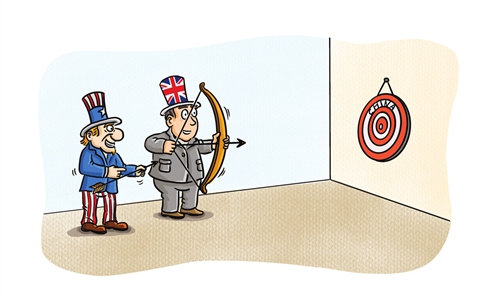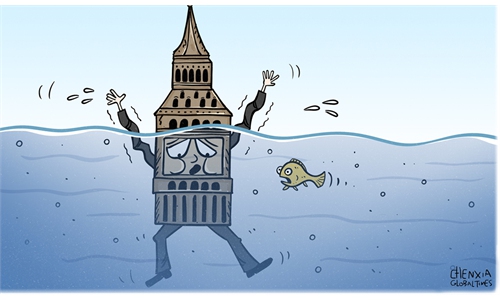The UK has scripted a big 'China threat' farce this time: Global Times editorial

Photo: Xinhua
London's concerns about the "China threat" are increasingly veering toward absurdity. On Monday, British Deputy Prime Minister Oliver Dowden publicly accused China in parliament, alleging that "China state-affiliated actors" were involved in two cyberattacks targeting British democratic institutions and lawmakers. He also announced sanctions on two individuals and one company. Some British media outlets claimed that China obtained personal details of 40 million voters. Dowden also mentioned that statements of support from the US and other allies were expected later in the day. This may be the start of yet another collective attempt by the West to smear China.
Previously, in reports by British media, the widespread attention to "the disappearance of Kate Middleton" globally has also been linked to China. An article in The Telegraph, a British newspaper, without providing any evidence, claimed that "China and Russia are fueling disinformation to destabilize the nation" by spreading negative information about the British royal family. From stealing personal information of 40 million voters and deliberately undermining British democracy, to sensationalizing news about Kate Middleton and affecting the reputation of the British royal family and national security, it seems as though China has endless designs on the UK, doing nothing else all day but targeting the UK. This symptom of paranoia deserves a severe diagnosis.
In recent years, the UK has become one of the most enthusiastic countries in the West to hype up the "Chinese spies" and "China threat." Chinese-made cameras have been banned under suspicion of being "spy cameras," Chinese-made electric cars are labeled as "four-wheeled Trojan horses" monitoring British citizens for Beijing, and even Hong Kong laundry workers with a long hiring history in the British navy have been dismissed due to alleged "spy risks." The bizarre accusations from the UK about "Chinese spies" and "China threats" are sufficient to compile into a comprehensive "paranoia casebook."
From what we can see now, London seems somewhat intoxicated with this absurd farce and delusion, even embracing it, charging headlong into absurdity, and even treating it as a lever to enhance its "global influence." As is well-known, post-Brexit Britain has stumbled economically and lost some visibility in diplomacy. In order to assert its position as a core member within the Western camp, it seems that the only way to secure its position in the "co-pilot" seat is by closely aligning with the US and causing trouble for China.
In fact, it is not China but the UK that is focused on causing disruption and infiltration. China has previously reported a case where the British Secret Intelligence Service (MI6) used the head of a foreign consulting firm to gather intelligence related to China for the British side and look for individuals to be recruited by the MI6. British media have also reported that agencies like MI6 have advertised to recruit Chinese-speaking individuals for intelligence activities. This is why some British politicians are so sensitive and fearful of so-called Chinese infiltration and influence; it's a projection of their own thoughts and actions.
Regarding cyberattacks and cyber espionage, as the spokesperson of the Chinese Ministry of Foreign Affairs has stated, the issue of tracing the origins of cyberattacks is highly complex and sensitive. When investigating and determining cyber events, there should be sufficient objective evidence rather than baselessly smearing other countries, and cybersecurity issues should not be politicized. British politicians and media have repeatedly thrown out unverified or even deliberately distorted information, clearly not aiming to seek the truth.
The so-called "Chinese spies" and "China threat" are nothing but the paranoia of some anti-China extremist politicians hijacking the entire country. They deliberately stoke fear of China to advance their political agendas and achieve their political goals. On one hand, by hyping up the idea of "Chinese spies" and "China threat," they cover up their failures in addressing domestic issues in the UK and divert public attention. On the other hand, there are those who simply do not want good relations between China and the UK. Just as China-UK relations were beginning to show signs of dialogue last year, suddenly there emerged a groundless case of the arrest of a parliamentary researcher as a spy, intentionally causing trouble for bilateral relations.
Regarding the recent British hype about Chinese "cyberattacks" affecting 40 million voters, an important background highlighted in British media reports is the upcoming general election in the UK later this year. By using such attention-grabbing numbers to stir up fear of foreign interference, it's essentially scaring themselves, showing a lack of confidence in their democratic system. A previous poll showed that 43 percent of respondents believed that the UK was "in decline," with only 6 percent believing that the UK's political system was functioning well. If they are genuinely concerned about their democratic system being undermined, what Britain should do is not to go around with a loudspeaker looking for enemies but to earnestly search for and address their own problems. The enemy is not outside, and certainly not China.



